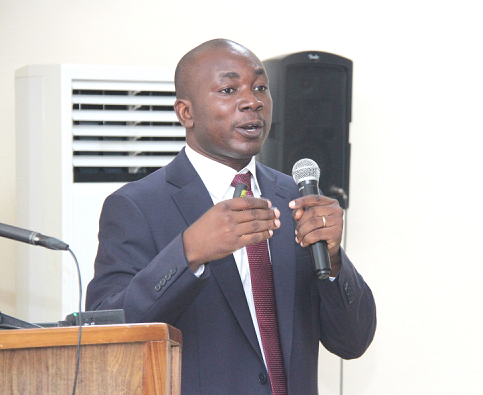
University of Ghana alters grading system
The University of Ghana has altered its grading system for students to reflect the peculiarity of the time occasioned by the outbreak of the coronavirus (COVID-19).
Consequently, grades for assignments will now be marked over 70 per cent, while the examination takes 30 per cent. This is a reversal of the norm, where assignments were marked over 30 per cent while the examination took 70 per cent.
This is to make for the limited time the students have to assimilate everything they have been taught within the seven weeks.
The alteration, which maintains the quality of tuition and learning, is mainly in response to the university’s decision to split undergraduate students into two streams over the semester in seven weeks instead of the usual 13 weeks in a semester.
The Dean of Students of the university, Professor Godfred Alufar Bokpin, who disclosed this in an interview in Accra, explained that because of the limited time the students would have for academic work, more emphasis would be placed on assignments.
He said it was the conviction of the management of the university that the students "may not have enough time preparing for examinations, but when it comes to assignments they will have enough time to do all the readings and the consultations to do proper work and submit for a bigger percentage marks."
Contact hours
Prof. Bokpin has, therefore, assured students that in spite of the planned short time for the semester, management had taken all their concerns into consideration and had made the necessary adjustments for smooth academic work.
He said typically a semester was defined by course credit hours and explained that for instance, a three credit course had three hours a week, insisting that the students would not be shortchanged in terms of contact hours.
"So what the modular system which is being used now means is that the contact hours per week is going to be doubled," he said, adding that the contact hours with faculty would have been 26 hours in the normal stream of 13 weeks of lectures.
He admitted that because of the arrangement, students would not have enough time to assimilate in seven weeks what they would have been expected to do in 13 weeks.
Split arrival
Giving details about the split, Prof. Bokpin explained that the university had decided that first year (Level 100) and final year (Level 400) students would begin the first semester of the academic year this January while Levels 200 and 300 students would begin their first semester in March.
He explained further that the decision was taken to manage the numbers of students on campus in order to minimise the possible spread of the coronavirus disease (COVID-19) among lecturers, students and staff of the university.
Prof. Bokpin appealed to students at Levels 200 and 300 to use the period they would be staying at home to do practical attachments with industry and corporate organisations in order for them to gain some practical experience.
